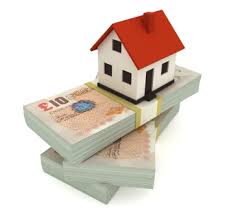How do new interest rules affect my buy to let property?
Changes announced in the Summer Budget may significantly increase your tax liability if you have a property business – including a single buy to let – read on….
Now
At present, full tax relief is available for interest on a loan used in a property business. The funds may have been used to purchase the let property, to make major repairs, or just to fund the working capital of the property business.
From April 2017
From April 2017, tax relief on interest in property businesses ( including single buy to lets) will be restricted so that by 2020, interest will not be an allowable expense in computing the profit of the business, but instead will attract tax relief at 20%. The change does not affect furnished holiday lettings. The change will be phased in as follows:
| 2017/18 | 2018/19 | 2019/20 | 2020/21 | |
| % of interest allowed as a deduction | 75 | 50 | 25 | 0 |
| % of interest given as a relief at 20% | 25 | 50 | 75 | 100 |
A letting activity that has a low level of interest in relation to the borrowings will not be too badly affected, but where there is a higher level of borrowing, individuals will find that the business model has been severely undermined.
So how will this work?
Example 1
Jo is a 40% taxpayer. He has purchased a buy to let property as an investment. Here is the effect of the changes:
| now | 2020/21 | |
| Gross rents | 7,200 | 7,200 |
| Repairs, agents fees and other tax deductible costs | 1,000 | 1,000 |
| Mortgage interest | 2,500 | |
| Net rental profit | 3,700 | 6,200 |
| Tax at 40% | 1,480 | 2,480 |
| less interest relief at 20% | 500 | |
| Net tax liability on rental income | 1,480 | 1,980 |
| tax increase | 500 | |
| effective tax rate on “real” rental profit | 40.0% | 53.5% |
Example 2
In this case Jo has a bigger mortgage and hence more interest:
| now | 2020/21 | |
| Gross rents | 7,200 | 7,200 |
| Repairs, agents fees and other tax deductible costs | 1,000 | 1,000 |
| Mortgage interest | 5,000 | |
| Net rental profit | 1,200 | 6,200 |
| Tax at 40% | 480 | 2,480 |
| less interest relief at 20% | 1,000 | |
| Net tax liability on rental income | 480 | 1,480 |
| tax increase | 1,000 | |
| effective tax rate on “real” rental profit | 40.0% | 123.5% |
The tax due is more than the net funds available from the rental surplus by £280.
The new rules may also push a tax payer into the higher rate band, result in reduction of personal allowance or trigger the repayment of child benefit.
What are your options?
- Incorporation – has tax and other cost implications and borrowing often not easy
- Reduce borrowing so impact is less
- Sell property
- Accept the increase if expected capital gain on property makes it worthwhile
Please contact us to find out how this will impact on you.
01763 – 853633


